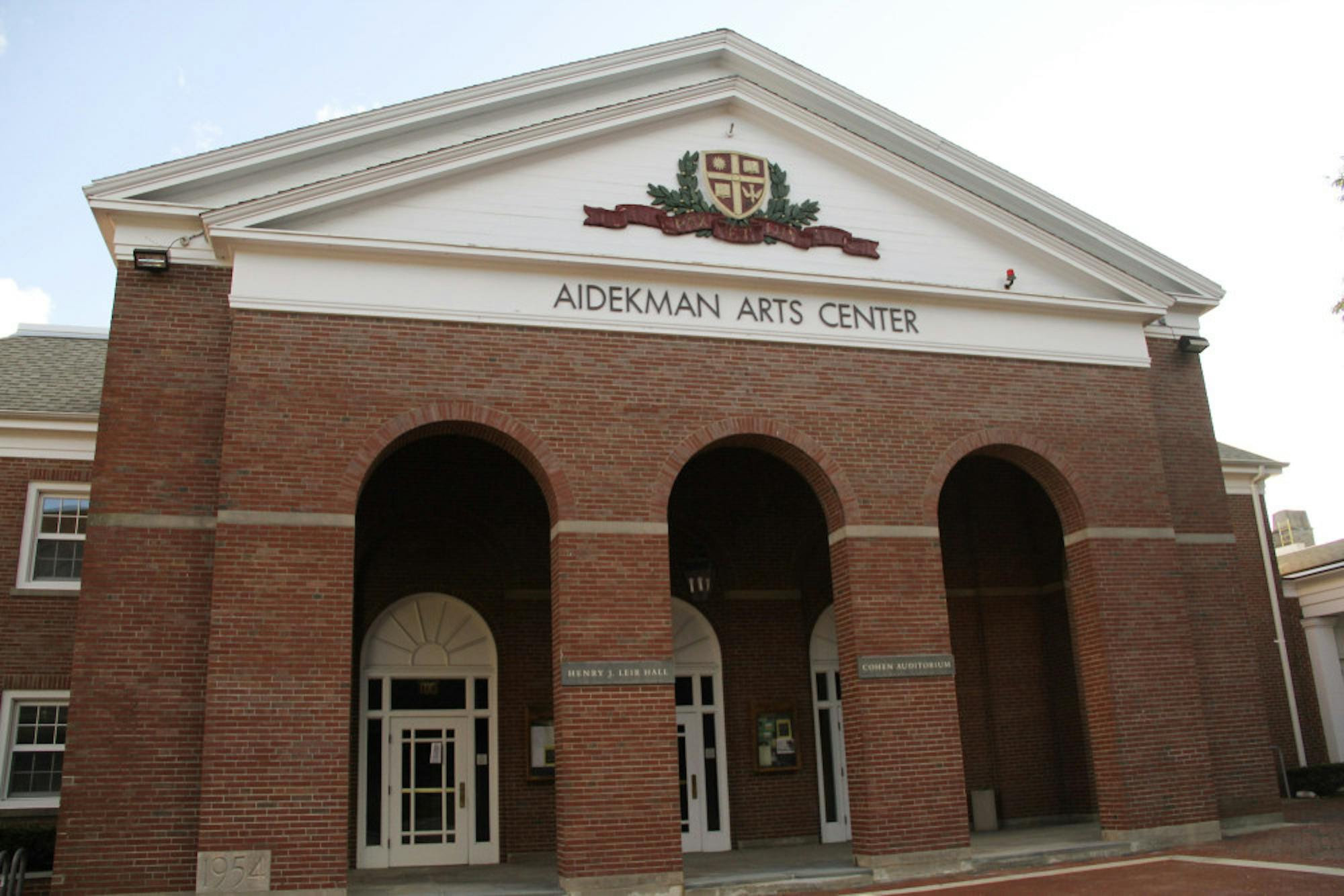Theatre, Dance, and Performance Studies
Through careful planning alongside university administrators, department faculty and student leaders, the Tufts Department of Theatre, Dance, and Performance Studies has based its fall 2020 policies largely off those recommended bynational theater and dance organizations.
Heather Nathans, the department chair of Theatre, Dance, and Performance Studies and the Alice and Nathan Gantcher professor in Judaic studies, has had a significant role in defining the department’sfall semester guidelines.
“A big change that [the department] will see is spreading out the dance classes,”Nathans said. “Students will each have about a 12-foot radius, which is recommended for dance. The same guidelines will be observed in the theater performance spaces.”
The Balch Arena Theater in the Aidekman Arts Center is a main performance space for theater on campus, and could hold up to 230 audience members before social distancing guidelines.
Nathans expressed that the department could not forgo its regular performances, so the faculty and student planners got creative.
“Our hope is that we will be able to film and stream, either from our theater or from performers’ rooms, and edit those into afestival that we’ll be able to share this fall,”Nathans said.
The dance branch of the department has faced its own obstacles in planning for the upcoming semester. Like Nathans, Renata Celichowska, director of dance and senior lecturer, has been heavily involved in the definition of guidelines for the fall.
“Dance was one of the first curricular areas that people looked at when all this panic was happening about how to teach online,” Celichowska said.
The department has opted to move a portion of its classes to a fully virtual format, with the university’s small dance studio set up as a filming studio and virtual teaching space. Of course, virtual dance classes do pose their share of challenges.
“What we really value is that dance is a communal experience where you are moving in unison to a certain tempo or a certain quality of movement,” Celichowska said.
Because of this concern, some classes will be held live in person to maintain this communal experience, while keeping all dancers at least 12 feet apart and wearing masks.
“We want to stay true to the experience of cultivating community through movement,”Celichowska said, “and also give people the opportunity to have that physical release more now than ever.”
For new and returning students interested in the Department of Theatre, Dance, and Performance Studies, the changes made to the upcoming semester do not weaken the community that the department strives to create.
“I would encourage students tostart taking classes; that is a phenomenal way to get to know the faculty,” Nathans said. “Our production team designed a team-taught course that would welcome new students to the program, and it is taught by all of the production faculty. That is a great chance to dive in.”
Music
With live performances out of the question, the Tufts Department of Musicis looking for ways toadapt its curriculum to these changing times. Different courses call for different measures.
Frank Lehman, an associate professor of music and the director of undergraduate studies, who is teaching MUS 0197-01: Current Trends in Music Theory this fall, speculates that it won’t be tremendously difficult to adapt to Zoom for his course.
“I’m thinking because it doesn’t involve performance, it doesn’t necessarily involve some of the really tricky musical and sonic challenges as some of the other courses involve … students are going to be leading the class presentations and discussion, but that can work through Zoom,” Lehman said.
However, in the case of Professor of Music and Director of Graduate Studies John McDonald’s two upper-level composition classes this fall, transitioning to Zoom has included a number of other difficulties.
“You can’t play ensemble music if someone is in a different location,” McDonald said, which is something that becomes an obstacle when, as McDonald puts it, “one of the things that’s important for composers is to hear their music performed.”
With restrictions put in place as a result of the COVID-19 pandemic, the two concert series that McDonald had previously developed for composers to showcase their music, theTufts Composers Concert Series and theNew at Noon concerts, are now impossible. Instead, McDonald is planning what he calls a Tufts Composers PractiCast as well as a few New at Noon concerts as a way to broadcast what the composers in his courses are writing.
Given therecent university announcement that the performance of all wind and brass instruments, as well as singing, will not be permitted as a result of the COVID-19 pandemic, these concerts will only include strings (orchestral and plucked), percussion and keyboard instruments, according to McDonald.
In addition to adapting to COVID-19 restrictions, McDonald is taking this opportunity to use these limitations as creatively as possible.
“I’ve been fond of talking about how composers thrive on limits, so this is a time of crazy limitations, and limitations that you don’t expect,” McDonald explained.
Therefore, McDonald is using these limitations as a framework for some of his projects — ideas he’s been thinking about includeantiphonal music (music performed with a wide space between players), asynchronous music, an unseen performer and humming projects as a way to use the bounds of COVID-19 as inspiration for new projects.
“I’m developing themes that kind of work for the time period, I suppose you could say,”McDonald said. “That’s how my mind has taken off creatively, and I love that. I love thinking it through.”
Because many of the new restrictions have caused the music department faculty to rethink their lesson plans this semester, both Lehman and McDonald stressed the importance of taking this opportunity to also create a more inclusive curriculum with regard to anti-racist discourse.
“We can use at least some of this energy and turn it into making a more just curriculum too since we’re already revising everything that’s been on our minds,” Lehman said.
McDonald expressed a similar sentiment — that when it comes to adapting to the pandemic or to the issues of race representation, especially in academia, the only way is to keep going forward.
“We need to keep working on it constantly. Keep reinventing, keep refreshing, keep revitalizing, keep trying to understand what needs to be done and what can be done, so those two things — it could be the pandemic, and it could be the anti-racist curriculum, very different subjects, but a similar kind of thinking where you don’t go back. You’re not going to turn around,” McDonald said.






